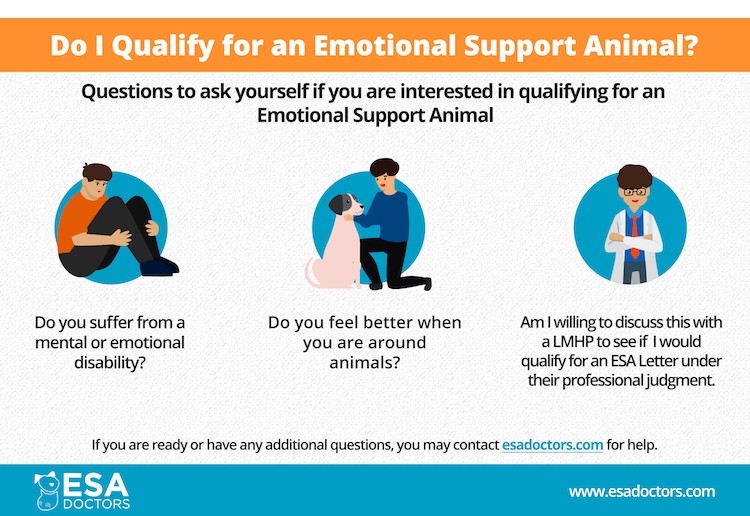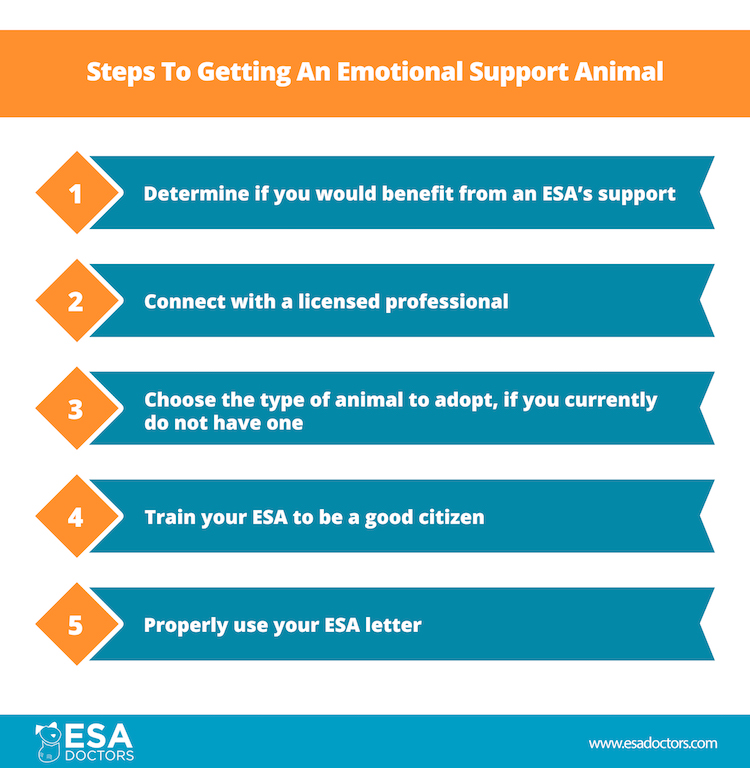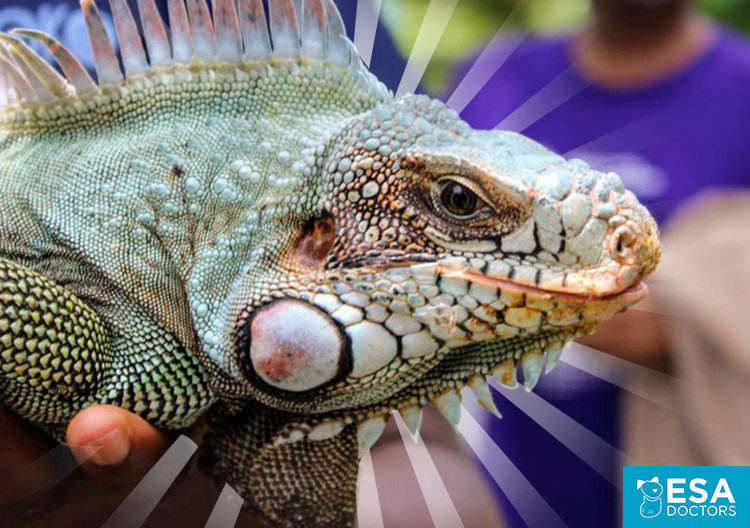The most commonly used animals as an emotional support animal (ESA) are dogs and cats. They are the stereotypical household pet and easy to train. However, there’s a wide variety of animals that can be adopted for this purpose. Any animal that provides a sense of safety and security to their owner is able to become an emotional support animal; examples include pigs, birds, hamsters, rabbits, and even iguanas.
What Is an Emotional Support Animal?
An ESA is an animal that provides comfort and support through companionship. A person will usually utilize an emotional support animal for treating symptoms caused by mental health disabilities, such as depression and anxiety. As opposed to a service animal, ESAs don’t need to learn any specific tasks or tricks and don’t need to be registered within a specific agency.

How to Make an Iguana an Emotional Support Animal?
To qualify for an emotional support animal, a person with an emotional or mental disability would need to request an ESA letter from their licensed medical health professional. The LMHP needs to agree that the iguana’s therapeutic presence can significantly improve their owner’s quality of life and reduce symptoms of the disability. The ESA letter, which must be issued on the official letterhead of the LMHP, can be requested online through telemedicine.
To designate an iguana as an ESA, an ESA Letter needs to be obtained from a licensed healthcare professional who is licensed in your state of residence.
ESA Doctors, est. 2015
According to the Fair Housing Act, iguanas qualify as emotional support animals to assist people with mental or emotional disabilities. A landlord cannot charge a pet fee or pet deposit for an ESA iguana and cannot deny it due to a no-pets policy.

Do Iguanas Make Good Emotional Support Animals?
There are several reasons to choose an iguana as an emotional support animal:
1. An iguana is a low maintenance pet.
It lives in a terrarium and only requires to be fed once a day. As long as the owner is able to provide the proper habitat, an iguana will live a long, healthy life with minimal upkeep.
2. An iguana is a low energy animal.
It doesn’t require daily exercise and can survive happily inside its terrarium. A person who struggles with leaving the house may benefit from an exotic animal, such as an iguana, that can support them inside their home.
3. An iguana is quiet.
It doesn’t bark, meow, neigh, or make any other noise that may be considered obnoxious to some individuals. It can live indoors without disturbing the owner or their neighbors, which makes it the ideal indoor pet.
4. An iguana doesn’t require any training.
The owner will need to ensure that it can be handled properly, but it doesn’t need to learn any tricks or services in order to provide a person with support. It can solely exist with its owner and therefore be a beneficial emotional support animal.

An Iguana as an ESA
An iguana may not be the first pet choice for many people, let alone as an emotional support animal. However, for those who enjoy unique, low maintenance pets, an iguana may just be the animal they need in order to provide them with the companionship they’re looking for.
Qualify for your ESA Iguana Letter Online









I’m so happy to see that iguanas can be esa, but to say they are low maintenance is immensely wrong. They are very high maintenance, with their habitat and dietary needs, their behaviors, their breeding seasons, and whatever illness or injuries they may gain throughout their life. That said, my boy does help me quite a bit, especially on my down days. I still dunno how I got so lucky with his temperament and personality, but he is quite nicer than the cats are.